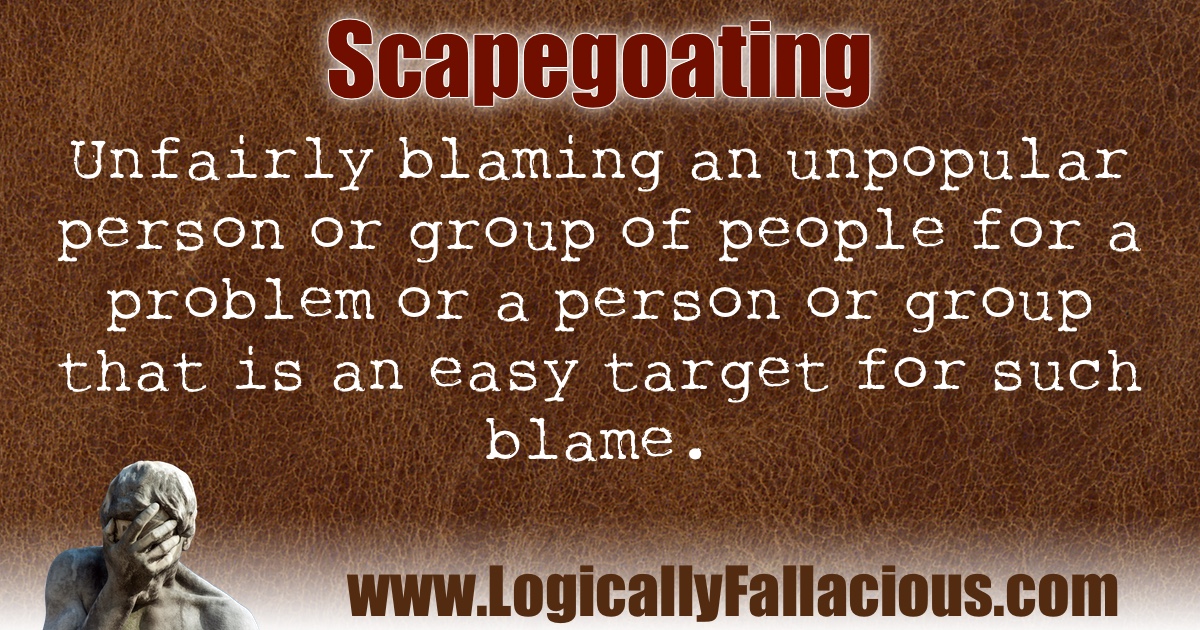Description: Unfairly blaming an unpopular person or group of people for a problem or a person or group that is an easy target for such blame.
Logical Form:
Nobody likes or cares about X.
Therefore, X is to blame for Y.
Example #1:
I know I got drunk, slapped the waitress on the behind, then urinated in the parking lot... from inside the restaurant, but that was Satan who had a hold of me.
Explanation: The person is avoiding personal responsibility and blaming “Satan” for his actions. Satan is an easy target -- he does not show up to defend himself, and a surprising number of people believe he exists and actually does cause immoral behavior.
Example #2:
The reason New Orleans was hit so hard with the hurricane was because of all the immoral people who live there.
Explanation: This was an actual argument seen in the months that followed hurricane Katrina. Ignoring the validity of the claims being made, the arguer is blaming a natural disaster on a group of people.
Exception: There is no exception when people are being unfairly blamed.
Fun Fact: Scapegoating meets a deep psychological need for justice, or more accurately, the belief that justice has been served.
